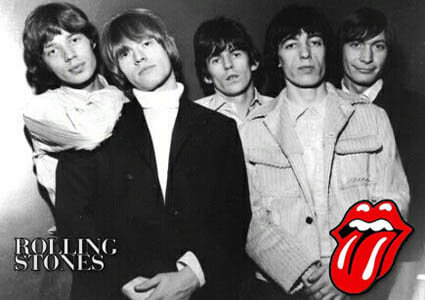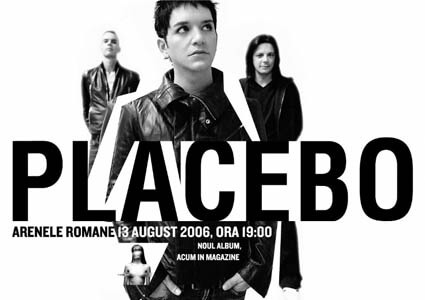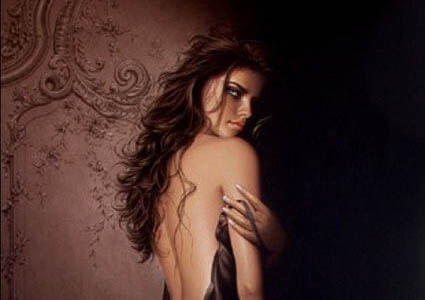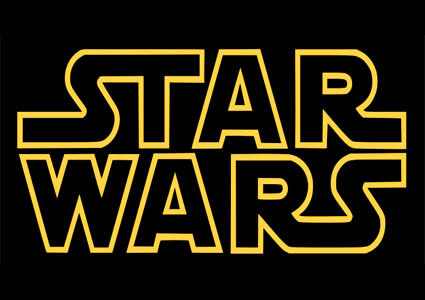The Breakfast Club - A Timeless Tale of Teen Rebellion
For Jack W. Marvin, The Breakfast Club wasn’t just a movie—it was a cultural event that captured the angst, confusion, and rebellion of being a teenager. Everyone around him thought he should have played "Bender" in a stage adaptation during high school, but for some reason, the project never came to fruition. Maybe it was fate, or maybe it was just high school drama, but either way, the movie continued to have a lasting impact on him.
Back in the 80s, after VCRs and VHS became a household staple, Marvin and his friends formed what they called The Phoenix Film Club. They would gather on Friday and Saturday nights to watch movies, and the tradition stuck for years. Eventually, the group evolved into The Phoenix Film Society, a name inspired by the popular Dead Poets Society with Robin Williams. They thought it sounded more sophisticated, much like their growing appreciation for film.
On a side note, the ex-friend that disappeared with my historic film collection was invited to join our group and perhaps even meet a girl. Everybody knew he never kissed a girl other than his mother and sisters, so it was a rare and generous offer. He never came, of course, because he would have to return the missing property. He later claimed that he never received any of the invitations and never got any of the phone messages. Yet, somehow, years later, he took our club's name and used it to start a shady non-profit corporation. He then took credit for the name, even though he started his club 15 years later. That’s a whole other story. The situation left a bitter taste, but as Jack Marvin would say, life goes on.
As for The Breakfast Club, it was a film that Marvin and his friends watched hundreds of times. From the first iconic scene to the unforgettable moments between the five high school stereotypes—each one of them felt relatable in different ways. The movie starred Emilio Estevez as the athlete Andrew, Molly Ringwald as the popular Claire, Judd Nelson as the rebellious John Bender, Ally Sheedy as the quirky Allison, and Anthony Michael Hall as the brainy Brian. Directed by John Hughes, The Breakfast Club brought to life a story about teenagers from different cliques who find common ground during Saturday detention.
The Cast and Crew
Directed by John Hughes, The Breakfast Club brought together a brilliant ensemble cast that included Emilio Estevez, Molly Ringwald, Anthony Michael Hall, Judd Nelson, and Ally Sheedy. Each of these actors brought their unique flair to their respective roles. Estevez's portrayal of the jock, Hall's nerdy yet charming performance, and Ringwald's perfect blend of vulnerability and beauty turned the film into a timeless classic.
John Hughes had already established himself as the voice of teen angst with films like Sixteen Candles and Ferris Bueller’s Day Off, but with The Breakfast Club, he created something that transcended the usual teen film. The characters weren’t just stereotypes—they were real, multifaceted people who showed us the complex nature of growing up.
John Hughes and Molly Ringwald: A Legendary Collaboration
John Hughes' relationship with Molly Ringwald was pivotal in the success of The Breakfast Club. Ringwald, having already starred in Hughes' previous hit Sixteen Candles (1984), was the perfect fit for the role of Claire, the princess who initially seems the most out of touch with the other characters but, like all of them, undergoes a transformation by the end. Hughes was known for writing authentic teen characters, and his collaborations with Ringwald brought out the best in his scripts. Together, they shaped the portrayal of teenage life in a way that felt genuine, relatable, and, above all, unforgettable.
Ringwald’s career skyrocketed in the 1980s, earning her the title of The Queen of Teen Movies thanks to her work with Hughes in Sixteen Candles, Pretty in Pink (1986), and, of course, The Breakfast Club. She became a symbol of the era's teen angst and rebellion, with Claire’s character offering a fascinating look at the pressures faced by high school girls in the '80s. Her success, however, extended beyond teen films—she also worked in television and continues to be a respected actress and writer in Hollywood.
The Stars Who Defined an Era
Emilio Estevez (Andrew Clark) – Estevez played the role of Andrew, the "athlete" who struggles with the expectations placed on him as a jock. A member of Hollywood’s Estevez-Sheen family dynasty, Emilio’s career was built around his ability to juggle both dramatic and comedic roles. After The Breakfast Club, he went on to star in the Mighty Ducks franchise, Young Guns (1988), and Repo Man (1984). He found both success and critical acclaim throughout his career, even as he became known for his direction and production work later on. His ability to show vulnerability in roles like Andrew helped solidify his status as a talented actor in both youth-centered and adult dramas.
Judd Nelson (John Bender) – Judd Nelson’s portrayal of the rebellious John Bender remains one of the most memorable performances from the film. His character was edgy, sarcastic, and defiant, representing a raw portrayal of teenage angst. After The Breakfast Club, Nelson went on to become a prominent 80s actor, starring in films such as St. Elmo’s Fire (1985), From the Hip (1987), and even finding a place in voice acting for animated series. His career took a different turn as he explored darker, more dramatic roles, but it’s safe to say that Bender remains his most iconic role.
Ally Sheedy (Allison Reynolds) – Sheedy’s portrayal of the mysterious and awkward Allison helped define her as one of the 80s most compelling actresses. After The Breakfast Club, Sheedy starred in a variety of roles, including Short Circuit (1986), where she portrayed a scientist, and WarGames (1983), a tense thriller that blended technology and espionage. While she experienced periods of being underappreciated by mainstream Hollywood, Sheedy’s contribution to teen cinema is undeniable. Her recent work in television and film has earned her critical praise and a place as one of the 80s' quintessential actresses.
Anthony Michael Hall (Brian Johnson) – As Brian, the archetypical "brain," Hall’s performance encapsulated the intellectual pressures of high school. After The Breakfast Club, Hall carved out a niche as one of the go-to teen actors of the decade, appearing in Hughes' Sixteen Candles and Weird Science (1985). His career would later evolve into more adult roles, including a memorable stint on the TV series The Dead Zone (2002-2007). Anthony Michael Hall’s charm and everyman quality endeared him to audiences then and still holds up today as a part of the '80s teen movie staple.
The Iconic Soundtrack of The Breakfast Club – A Key Element to its Enduring Legacy
The Breakfast Club soundtrack is, without a doubt, one of the most iconic soundtracks to come out of the 1980s. For fans like Jack Marvin, it wasn’t just background music—it was an essential part of the movie's vibe, one that resonated deeply with the feelings of youthful rebellion, confusion, and self-discovery. The soundtrack, released in 1985, was a collection of new wave, pop, and rock tracks that perfectly encapsulated the era's musical landscape.
For Jack, the Breakfast Club record wasn’t just an album; it was a weekend companion. His Phoenix Film Society group, with all their VHS screenings, would often pop the album on the turntable, grooving to the soundtrack's infectious beats. Here are the details about the songs and the classic album:
For Jack and his friends, these songs were a call to arms. It was their theme songs for Saturday nights spent in the film society, where they would share their love of movies and feel like part of something larger than themselves. It's the one album that, to this day, still reminds the surviving members of their high school days.
-
1. "Don't You (Forget About Me)" – Simple Minds
This iconic track plays during the closing credits and became the anthem of The Breakfast Club. Written by Keith Forsey and Steve Schiff, the song captures the themes of youth rebellion and hope. Simple Minds, initially hesitant to write a song for the movie, created a song that perfectly encapsulated the movie's message. It hit #1 on the charts and remains a hallmark of 80s teen films. For Jack and his friends, this song was their theme for those long nights spent watching films together. -
2. "We Are Not Alone" – Karla DeVito
This upbeat, rock-infused song plays during a pivotal moment in the film when the characters begin to realize they have more in common than they thought. It’s a powerful anthem of unity, sung by Karla DeVito. For Jack, it echoed the friendships made during movie nights, symbolizing the bond that forms when you let your guard down. -
3. "I’m the Man" – Joe Jackson
Joe Jackson’s edgy, funky track adds a rebellious vibe to the film, underscoring the youthful defiance of the characters. The song, played during one of the film's chaotic moments, reflects the swagger and boldness of the students as they break societal expectations. It was a soundtrack to Jack’s own experiences of challenging the status quo in his high school years. -
4. "She’s Got a New Spell" – Desiree
One of the more underrated songs on the album, Desiree’s “She’s Got a New Spell” offers a haunting, subtle tone that pairs well with the more upbeat tracks. It highlights themes of self-transformation, symbolizing the character's evolution as they let go of their old identities. For Jack, the song represents the feeling of becoming a new version of oneself, much like the characters in the movie. -
5. "Heart Too Hot to Hold" – Flesh for Lulu
This gritty, punk-inspired track reflects the rebellious nature of The Breakfast Club. With its hard-driving beat, it accompanies one of the movie’s key moments, when the character Bender pushes the limits of what is socially acceptable. For Jack, this song represents the raw energy of teenage rebellion and angst that defined his high school years. -
6. "Dream Montage" – Keith Forsey
An instrumental piece composed by Keith Forsey, this track accompanies one of the film’s most emotional sequences, where the characters start opening up to each other. It complements the deepening relationships between the characters. For Jack, this track captured the emotions of that scene, where a single piece of music could enhance the depth of a story. -
7. "Respect" – Aretha Franklin
Aretha Franklin’s powerful anthem plays at a crucial point in the film when the character Claire asserts her independence and demands respect. This iconic song became a symbol for standing up for yourself and your values. For Jack, “Respect” was more than just a song; it was a reminder to never let anyone take away your self-worth, a theme that resonates throughout the film. -
8. "Movie Theme" – John Hughes
The final track of the album, “Movie Theme” is a reflective, subdued piece composed by John Hughes himself. It encapsulates the journey of the characters from isolation to unity, judgment to understanding. For Jack and his friends, it was the perfect song to end their movie nights, echoing their own growth and the impact of the films they shared. -
9. "Right on Track" – The Breakfast Club
A high-energy song by the film's own band, The Breakfast Club. The song's upbeat tempo matches the youthful excitement of the movie’s characters. It's an anthem for breaking free from conformity, much like the characters do throughout the film. For Jack, it was a rallying cry for finding your own path in the world. -
10. "The Edge of Seventeen" – Stevie Nicks
This timeless track by Stevie Nicks is a perfect reflection of the feelings of adolescence and self-discovery. Played during a significant moment in the film, its lyrics capture the essence of coming-of-age moments. For Jack, it was a song that resonated with the emotional turbulence of youth, the ups and downs, and the realization that you're not alone in the struggles. -
11. "Can't Hardly Wait" – The Replacements
This track by The Replacements brings a sense of urgency and longing to the film, played during a moment when the characters are at a turning point. With its raw emotion and longing, it mirrors the film's themes of self-reflection and hope for the future. For Jack, it was the soundtrack to the moments when high school felt like it was coming to a head, and everything was about to change. -
12. "If You Leave" – Orchestral Manoeuvres in the Dark
This haunting and synth-driven track plays during the emotional climax of the film, when the characters have to confront the possibility of leaving behind the bonds they've forged during their detention. The song’s melancholic tone fits perfectly with the bittersweet nature of the ending. For Jack, it encapsulated the feeling of leaving high school and moving on to something bigger. -
13. "Time After Time" – Cyndi Lauper
Cyndi Lauper’s iconic song brings a sense of reassurance and support, playing during a moment of emotional growth and connection between the characters. The track's soft, yet persistent rhythm echoes the emotional development seen throughout the film. For Jack, it was a song that mirrored his own experiences of loyalty, friendship, and resilience. -
14. "Wouldn't It Be Good" – Nik Kershaw
This song brings a sense of longing and hope for a better future. Its reflective lyrics and smooth melodies capture the essence of wanting more from life, something that the characters in the movie wrestle with. For Jack, it was the anthem for every time he wondered if things could be different, offering a sense of yearning that was ever-present during those years.
The Breakfast Club Soundtrack Album – A Generation's Musical Identity
Released as a vinyl record, cassette, and CD, the Breakfast Club soundtrack became a cultural touchstone for 80s music lovers. The album not only introduced listeners to some of the best pop and rock of the era but also perfectly captured the spirit of the movie itself—rebellious, emotional, and deeply personal. Whether they were blasting it on a car stereo or spinning it on a turntable at home, fans like Jack Marvin knew that this album was more than just a soundtrack; it was an anthem.
The album charted on the Billboard 200 and was a staple in the collections of music fans everywhere. It became one of those records you’d pull out at parties, play on repeat, and then put on again the next day. Each track, from Simple Minds’ infectious anthem to the raw energy of “I’m the Man” by Joe Jackson, spoke to a different part of growing up—whether it was the exhilaration of newfound freedom or the vulnerability of realizing you’re not so different from the people you once judged.
Trivia & Fun Facts
- The original script had each of the characters in a different class than what was ultimately seen on screen. For example, Bender (Judd Nelson) was originally written as a jock.
- The iconic Don't You (Forget About Me) song by Simple Minds was written specifically for the film, but the band wasn't sure about it at first. It became one of their biggest hits.
- The entire film was shot in just 5 weeks, with the majority of it taking place inside the high school gymnasium set.
- The characters' names were inspired by different character types Hughes had encountered throughout his life. Bender’s character, for instance, was inspired by the rebellious types Hughes met in high school.
- Interestingly, the five actors spent a lot of time improvising their lines, which gave the movie its raw, genuine feel. Judd Nelson, in particular, would often improvise to add more of his edge to the role of Bender.
For Jack and his friends, the soundtrack represented more than just a piece of film history—it was the soundtrack of their youth, an album that would forever remind them of those nights spent in their makeshift film club, where they bonded over movies and memories.
The Breakfast Club wasn’t just another teen film. It was a snapshot of an era, a timeless piece of filmmaking that transcended its time and spoke to anyone who’s ever felt misunderstood. It also served as a reminder that sometimes, being part of a group can change your life in unexpected ways—whether it's a film club, a high school detention group, or just a bunch of friends who gather to watch the classics.





















